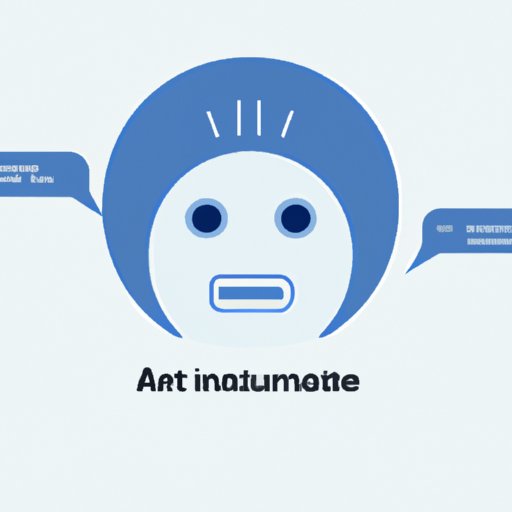Introduction
Conversational AI, or artificial intelligence (AI), is a technology that enables machines to interact with humans in a more natural way. It simulates human conversations, allowing computers to understand and respond to user requests and commands. By leveraging advances in machine learning, natural language processing, and speech recognition, conversational AI can be used to automate customer service tasks, provide personalized recommendations, and even create interactive experiences.

A Guide to Understanding Conversational AI
Before delving into the details of conversational AI, it’s important to understand what it is and how it works. At its core, conversational AI is a type of AI technology that allows machines to interact with humans by understanding, interpreting, and responding to their inputs. This is achieved through a combination of machine learning algorithms, natural language processing (NLP), and speech recognition software.
The primary benefit of conversational AI is that it makes it easier for businesses to interact with customers in a more natural, intuitive way. By automating customer service tasks, conversational AI can help companies reduce costs, increase efficiency, and improve customer experience. Additionally, conversational AI can be used to provide personalized recommendations, such as product suggestions, based on a customer’s past interactions.
In addition to customer service, conversational AI has many other applications in the business world. For example, it can be used to create interactive experiences, such as virtual shopping assistants, or to provide real-time insights into customer behavior. Additionally, conversational AI can be used to automate administrative tasks, such as scheduling meetings or managing customer databases.
Examples of Conversational AI and Their Use Cases
Now that we’ve explored what conversational AI is and how it works, let’s look at some examples of this technology and how they are being used:
Example 1: Chatbots
One of the most common uses of conversational AI is chatbots. Chatbots are computer programs that simulate human conversations, allowing them to answer questions, provide customer support, and even complete transactions. According to a study by Oracle, 80% of businesses plan to use chatbots by 2020.
Example 2: Virtual Assistants
Virtual assistants are another popular application of conversational AI. These AI-powered programs can be used to automate mundane tasks, such as scheduling meetings, sending reminders, and managing calendars. Companies like Amazon and Google have developed virtual assistant technologies, such as Alexa and Google Assistant, respectively.
Example 3: Natural Language Processing
Natural language processing (NLP) is a form of conversational AI that allows machines to understand and interpret human language. This technology is used in applications such as voice recognition systems and automated customer service agents. NLP can also be used to generate personalized recommendations, such as product suggestions, based on a customer’s past interactions.
Example 4: Speech Recognition
Speech recognition is a form of conversational AI that allows computers to understand spoken commands and respond accordingly. This technology is used in applications such as virtual assistants and voice-controlled devices, such as Amazon Echo and Google Home. Additionally, speech recognition can be used to automate customer service tasks, such as providing information about products and services.
Conclusion
Conversational AI has the potential to revolutionize the way businesses interact with customers. By leveraging advances in machine learning, natural language processing, and speech recognition, conversational AI can be used to automate customer service tasks, provide personalized recommendations, and even create interactive experiences. However, there are still many challenges facing conversational AI, including data privacy and security concerns, as well as the need for better natural language processing algorithms.
As the technology continues to evolve, so too will its applications. In the near future, we can expect conversational AI to become increasingly integrated into our everyday lives, from virtual shopping assistants to automated customer service agents. As conversational AI becomes more widespread, businesses will have to adapt to meet the changing needs of their customers.
(Note: Is this article not meeting your expectations? Do you have knowledge or insights to share? Unlock new opportunities and expand your reach by joining our authors team. Click Registration to join us and share your expertise with our readers.)
